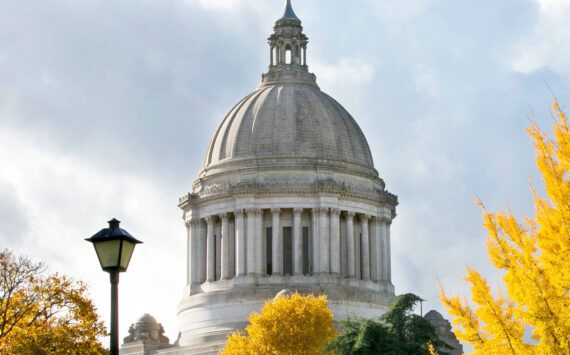When we put CleanScapes founder and eco-garbage hauler Chris Martin on our cover a few years back, his then-tiny company was making an improbable bid for a city of Seattle contract. In short order, CleanScapes won the bid, allowing the homegrown firm to pick up half the city’s trash and prompting it to grow exponentially. But CleanScapes’ ambitions are even bigger, and a recently announced merger now in the works has prompted a round of—there’s no other way to say it—trash talk from competing companies.
As CleanScapes told its employees recently, the company is combining forces with a much bigger San Francisco firm called Recology. Martin tells Seattle Weekly that Recology earns annual revenues of approximately $500 million, about 10 times more than the Seattle-based company. If the merger is approved by regulatory authorities, Clean-Scapes will become its subsidiary.
Martin says the attraction of Recology, though, is not just its assets. According to him, the San Francisco firm “has the largest recycling division on the West Coast” and the “biggest and best composting” facility in the area. And those are precisely the areas Martin wants to go into. Not content just to bring trash elsewhere to be processed, he wants to do the processing himself.
The Seattle area already has both composting and recycling facilities, of course. They’re run, respectively, by Cedar Grove and Allied Waste Industries. “There’s nothing wrong with a little competition,” Martin says when asked about them.
On that point, the city agrees. “We love competition,” says Seattle Public Utilities contract manager Hans Van Dusen, noting that’s the way to get the best deals for taxpayers.
Ever the evangelist for finding green ways to deal with garbage, Martin says CleanScapes is also interested in trying new things. “Cedar Grove does a fantastic job,” he says of his possible competitor’s composting facility. But he wonders about the methane gases that it and similar facilities release. “We know there are ways to capture those gases and use it for energy,” he says.
Cedar Grove, however, insists that its facility does not release methane gases. And Jeffry Borgida, general manager of the local division of Allied Waste Services, says that his company, not Martin’s new partner, has the biggest composting and recycling facilities. In an e-mail to Seattle Weekly, Borgida cites Allied’s “materials recovery facility” in Anaheim, Calif., which he says handles 6,000 tons of recyclables a day. Recology’s largest facility, he says, can take only a mere 2,100 tons.
Borgida might be feeling especially touchy about CleanScapes this week as the fight over a collection contract in Issaquah plays out. On Tuesday, the city let it be known that it is likely to jettison Waste Management—its current collector and another giant in the business—in favor of CleanScapes. Allied had also put its hat in the ring, and Borgida wondered aloud why his company’s bid, which was considerably lower than CleanScapes’, hadn’t been given more consideration.
He also urged people to take a harder look at his homegrown rival now that it is aligning with another company. He noted that in San Francisco, the Recology deal is being seen as an acquisition by the bigger company, not a merger. “CleanScapes was well understood. Everybody knew Chris Martin.” But Recology, Borgida says, is “a new player.”
And apparently it is making CleanScapes, once such an underdog that it seemed incredible that it could win a major garbage contract, more of a threat than ever.







